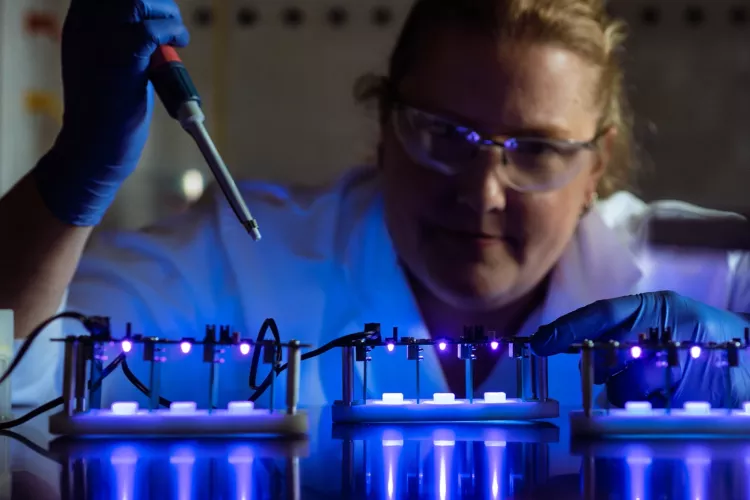UofL-born cell therapy for organ transplants enters Phase 3 trial
October 2, 2024A cell therapy born at the University of Louisville that could improve the lives of kidney transplant recipients has entered its Phase 3 clinical trial — the last step before applying for FDA approval.
The unique cell therapy, called FCR001, allows living-donor kidney transplant recipients to stay off immunosuppression drugs they would otherwise need for the rest of their lives.
Immunosuppressants help prevent rejection of the transplanted organ, but can cause side effects, including high blood pressure, diabetes, high cholesterol, neurological effects and increased risk of infection. They also are toxic to the kidneys, causing decline in kidney function over time.
FCR001 consists of stem cells taken from the organ donor and processed at the Talaris facility, then infused into the organ transplant recipient. The goal is to create a durable “dual immune system” (part donor-derived and part recipient) in the transplant recipient. These two immune systems coexist, recognizing both the recipient’s own body as well as the donated organ as self.
Talaris Therapeutics Inc., formerly known as Regenerex LLC, is developing and commercializing FCR001. UofL researcher and innovator Suzanne Ildstad founded the company to commercialize the pioneering work of her team at the university and now serves as Talaris’ chief scientific officer.
“We are very gratified to have reached the milestone of treating the first patient in our pivotal Phase 3 clinical trial as we work to make this therapy broadly available to patients receiving a kidney transplant from a living donor,” Ildstad said. “Thanks to our talented team, investors and the research infrastructure at UofL, we have moved incredibly quickly over the past year to both initiate this trial and to plan additional clinical studies of FCR001 in other indications.”
Last year, Talaris raised $100 million from investors to hire staff and initiate the Phase 3 trial evaluating the safety and efficacy of a single dose of FCR001 in living donor kidney transplant recipients.
In an earlier Phase 2 trial, FCR001 allowed 70% of living donor kidney transplant patients durably to be weaned off all of their immunosuppression treatments. The first patient successfully dosed with FCR001, Robert Waddell, has been off immunosuppressants for a decade with no signs of organ rejection.
“It makes me forget I was ever sick,” Waddell said. “I feel as healthy as I ever have.”
The Phase 3 trial is expected to enroll 120 adult living donor kidney transplant recipients at multiple sites across the U.S. To date, the trial has been initiated at five clinical sites around the country.
“We are rapidly expanding our network of trial sites, with five sites now active and a planned 10 sites active by the end of this year,” said Scott Requadt, chief executive officer of Talaris. “We look forward to ramping up enrollment across the U.S. as we work to offer living donor kidney transplant patients a future potentially free from chronic immunosuppression.”
More information about the trial is available online here.
Baylee Pulliam leads research marketing and communications at UofL, building on her experience as an award-winning business, technology, health care and startups reporter. She is a proud product of the UofL College of Arts and Sciences, where she earned her undergraduate degree in English. She also holds an MBA, a Master of Arts in Organizational Leadership and is pursuing a Ph.D. in the latter with a focus on corporate innovation.
Related News



